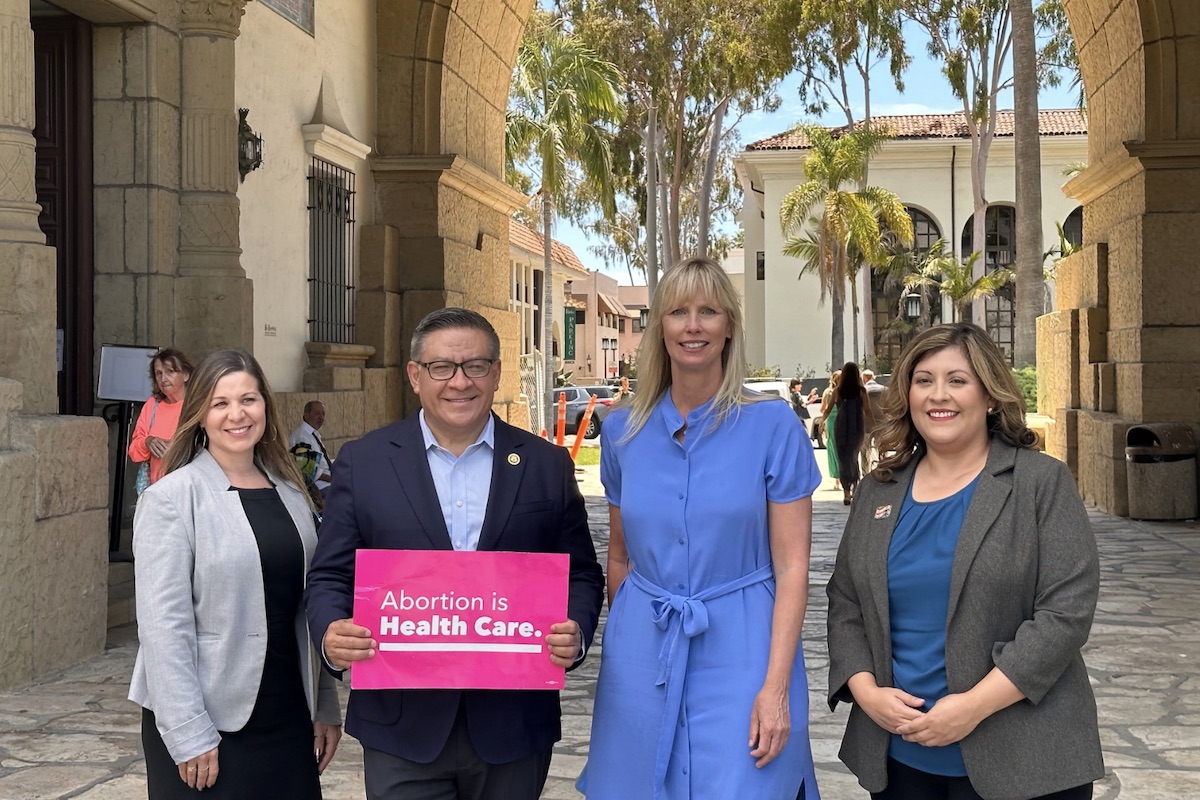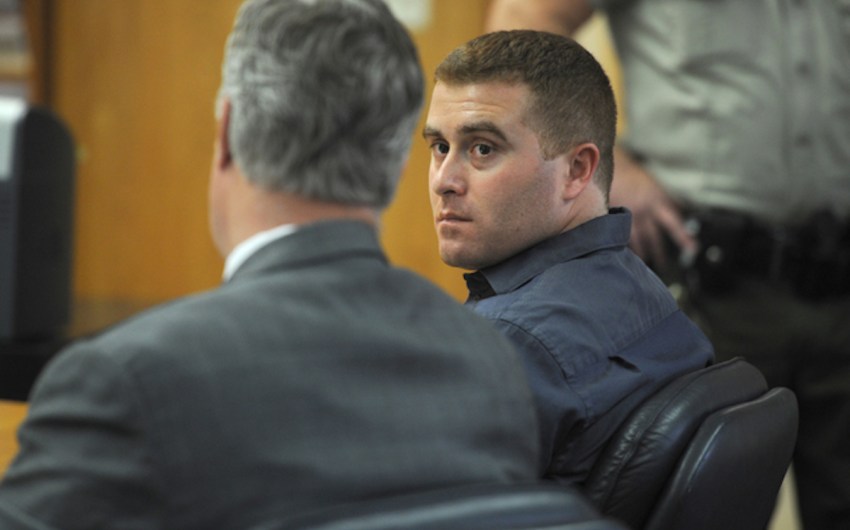Santa Barbara Leaders Reflect on Two-Year Anniversary of ‘Roe v. Wade’ Reversal
Congressmember Carbajal and Supervisor Capps Rally with Planned Parenthood on Monday

To commemorate two years since the U.S. Supreme Court’s landmark decision to overturn Roe v. Wade, Congressmember Salud Carbajal was joined by members of Planned Parenthood and elected officials in front of the Santa Barbara County Courthouse to reflect on what that decision meant for the millions of women affected.
“This decision was 100 percent out of step with the American people,” Carbajal said. “The rights of women were eroded.” Since the decision, Carbajal has been working in Washington to ensure continued access to reproductive health care but continues to hit opposition from his Republican counterparts.
While the right to abortion is legal — and constitutional — in California, “these attacks have consequences with ripple effects in every state in the country,” said Jenna Tosh, president and CEO of Planned Parenthood Central Coast, not just the states with partial or total bans.
While she couldn’t give an exact amount, Tosh said that the number of out-of-state abortion seekers has grown “significantly” in her clinics since the Supreme Court’s Dobbs decision, which revoked the constitutional right to an abortion.
A shortcoming in the abortion debate has been the lack of recent data on the number of abortions and where patients are coming from, especially on a county level. Tosh attributed the lack of data to the “very fluid situation” as well as confidentiality concerns from out-of-state patients.
According to 2023 data from the Guttmacher Institute, California saw a 19 percent increase in abortions statewide since 2019, with nonresidents making up only 4 percent of patients. Researchers hypothesize that this number is still so low because California does not border any state with a total abortion ban — Arizona’s Civil War–era ban isn’t enforceable until September at the earliest.
By contrast, Illinois, surrounded entirely by highly restrictive states, saw one of the largest influxes of out-of-state patients, with their nonresident share more than 40 percent.
With so many patients needing to travel for abortion services, many doctors have turned to prescribing an abortion pill, which eliminates the need for travel if it’s early enough in the pregnancy.
However, that too has been up for debate, with challenges to the FDA’s approval of the widely used abortion pill, mifepristone, ending up at the Supreme Court. Much to the anti-abortion movement’s dismay, the Supreme Court unanimously voted on June 13 that access to mifepristone could not be restricted.
Both Santa Barbara County Supervisor Capps and Congressmember Carbajal ended their speeches by emphasizing the importance of voting in the upcoming presidential election this November. “Elections have consequences,” Capps said.
This article was underwritten in part by the Mickey Flacks Journalism Fund for Social Justice, a proud, innovative supporter of local news. To make a contribution go to sbcan.org/journalism_fund.










